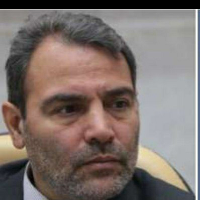Jacques Lacan and Political Fantasy
As a consequence of taking psychology out of the realm of the individual, the French philosopher and psychoanalyst Jacques Lacan has introduced concepts which have been highly regarded by philosophers and socio-political theorists. One of the most important concepts in Lacanian terminology is ‘fantasy’. The authors’ main objective is to carefully explain the concept of fantasy as used in Lacan’s theoretical discussions, and then examine the socio-political function of fantasy as a concept that facilitates social reproduction of the ideology of force in totalitarian structures by creating an idealistic and mobilizing discourse. In search of a proper and convincing answer to the question of what is the significance of Lacan's fantasy, we use Fairclough's critical discourse analysis method to explore the relationship between this concept and power as one of its socio-political functions. It is important to look at how concepts are used in ideological discourses for the abuse of power which could in turn lead to inequality, and discrimination. A critical discourse analyst seeks to define the concepts which are used in hegemonic discourse to establish the power of a hegemon in society. In the theoretical section, an introduction to Lacanian psychology and its relation to socio-political analysis is presented, and then there is an attempt to describe how the subject is constructed from Lacan's point of view. As a starting point and background for understanding the core of Lacanian psychoanalysis, three concepts of mirror (the imaginary), the symbolic, and the real, and the stages of formation and construction of other concepts such as the O/other and jouissance are described. Lacan argues that the subject always seeks to reach wholeness in two imaginary and symbolic realms and in the process of his subjectivity, but this effort of the subject is only an unattainable fantasy because both of these realms have disjunctions and gaps, and the wholeness is in the real, where it is unattainable. Fantasy covers this failure with its elements and overcomes the loss in the Other, and it must also be considered to belong to the social sphere. According to Lacan's discourse, in all ideologies and political schools, from the utopianism of Plato and Farabi to the communist and fascist movements, wherever people are promised a united and homogeneous non-pluralistic society, those promises are only "fantasy" in order to hide the gaps and inherent shortcomings of the social arena and cover the natural pluralities and ignore the antagonism and inherent differences in society. The purpose is to promise an imaginary society full of goodness in which the sun of happiness never sets on the followers and the believers. This is a well-organized society that has become the place of retrieval and accumulation of all good virtues, free from all evils. This is a society where differences, violence and conflicts give way to unity, empathy and absolute prosperity. This is the utopian idea that human beings, in the absence of their lost paradise and lost jouissance, paint its image on their imaginary canvases which show this dream world in myths and stories. Of course, a thinker or a group of theorists within the framework of a philosophy or ideology from time to time have tried to seek the realization of this utopia which is sometimes based on the "fantasy" of racial or religious superiority and occasionally promise goodness, prosperity or absolute equality on the basis of certain political ideology. However, since almost all scholars who utopianize were already aware of their failure, they always wanted to justify their failure by introducing an external destructive element as a cause of turmoil and obstacle to happiness. They then make promises about eliminating the destructive and obstructive factor in order to keep alive the element of desire to strive in an attempt to achieve a unified and harmonious society which is free from any defects and shortcomings for the adherents of the endorsed ideology. According to some scholars, this desire for a single voice and absolute harmony leads to the desire of utopianists for totalitarianism and the suppression of the fundamental freedoms of society leading to the most severe and violent forms of confrontation with opposition groups. Accordingly, the commentators of Lacanian psychoanalytic discourse interpret the design of all ideologies and political schools advocating reforms in pursuit of a utopia based on unity and solidarity as mere "fantasies" which in fact are grounds for totalitarianism.
- حق عضویت دریافتی صرف حمایت از نشریات عضو و نگهداری، تکمیل و توسعه مگیران میشود.
- پرداخت حق اشتراک و دانلود مقالات اجازه بازنشر آن در سایر رسانههای چاپی و دیجیتال را به کاربر نمیدهد.



